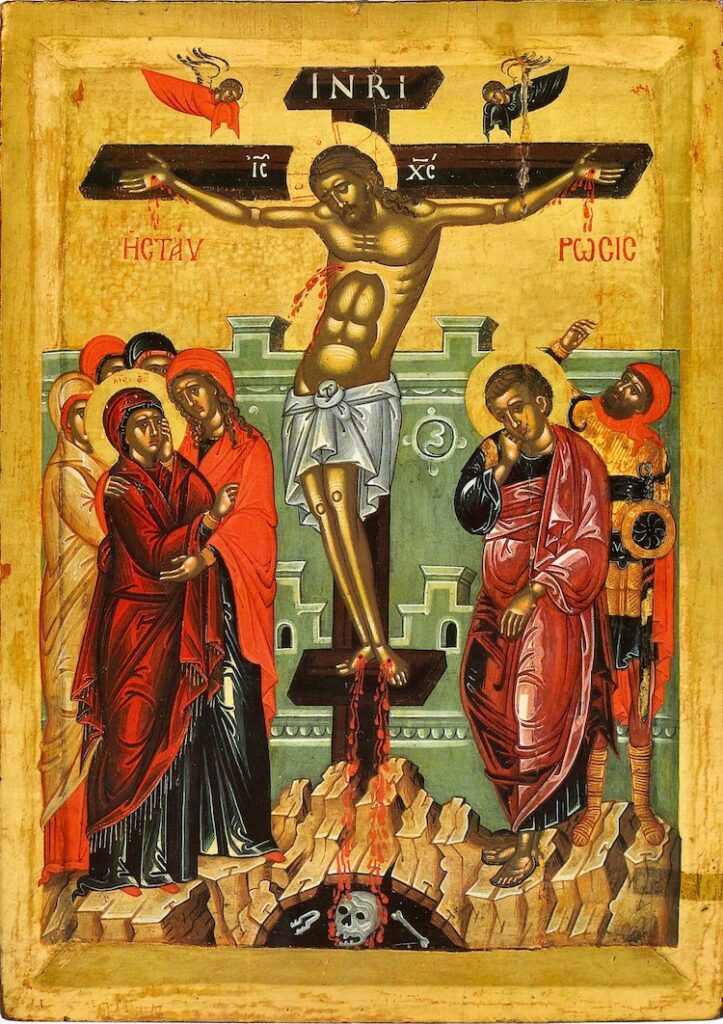In the name of the Father, and of the Son, and of the Holy Spirit, one God, Amen.
It is a great honour, dear brothers and sisters, to compete in the Olympics. There is, first, the honour of being selected by a nation to be its representative at the highest level of athletic contest. It has been preceded by months and years of early morning training, honing of skill, careful control of diet. The lives of Olympians have been dominated for years, even decades, of dedication to their sport to be the best they can be, the best in the world.
And I look at what is expected and I think to myself, “it’s too much for me: I could never do it.” And I turn and see the training expected of doctors, nurses and other health-care workers and I think, “it’s too much for me: I could never do it.” And I look at the training of barristers, of fire fighters, of soldiers, of astronauts, of pilots and I think to myself, “it’s too much for me: I could never do it.” And I start to realise something which I have known deep down from the beginning, “the training isn’t the problem, I am the problem;” since to obtain anything of value, anything of meaning, requires training, requires effort, requires dedication.

“If anyone wishes to come after me,” says the Lord, “let him deny himself and take up his cross and follow me.” The prize on offer is no mere job or medal, it is life, the Kingdom of God, union with the Almighty—and it takes effort on my part. I must deny myself—which is to say place others as more important than I am, God first and then my neighbour—and carry my own cross, my own burden. But this race, this competition, is different from jobs and different from athletic contests: we are not competing against each other, we compete alongside each other. You and I are each here, together with the great multitude of saints and Christ himself, to help and support each other, to bear each other’s burdens.
And we may go even further, for when we start this process and take up our own cross—something which seems daunting and even impossible at the outset—we begin to understand the words of the Lord, “For my yoke is easy and my burden is light.” (Matthew 11:30) “For this is the love of God,” says the Beloved Disciple, “that we keep his commandments. And his commandments are not burdensome.” (1 John 5:3)
My dear brothers and sisters in Christ, take up your cross. And if it seems too heavy, pick it up anyway; and if it seems impossible, pick it up anyway; and if anything tries to get in your way, pick it up anyway. And if you are struggling, or think you can bear it no longer, remember you have the Church with you who will help you, support you, encourage you, even carry the burden with you. And your reward will be great: you will become your potential, you will become truly human, you will become heirs of the Kingdom.
To our Saviour, Lord and God, who bears each of us with joy, Jesus Christ be all glory, honour and might, together with his Unoriginate Father and the All-holy, Good and Life-giving Spirit. Amen.
Brethren, since we have a high priest who has passed through the heavens, Jesus, the Son of God, let us hold fast our confession. For we have not a high priest who is unable to sympathize with our weaknesses, but one who in every respect has been tempted as we are, yet without sin. Let us then with confidence draw near to the throne of grace, that we may receive mercy and find grace to help in time of need. For every high priest chosen from among men is appointed to act on behalf of men in relation to God, to offer gifts and sacrifices for sins. He can deal gently with the ignorant and wayward, since he himself is beset with weakness. Because of this he is bound to offer sacrifice for his own sins as well as for those of the people. And one does not take the honor upon himself, but he is called by God, just as Aaron was. So also Christ did not exalt himself to be made a high priest, but was appointed by him who said to him, ‘Thou art my Son, today I have begotten thee’; as he says also in another place, ‘Thou art a priest for ever, after the order of Melchizedek.’
— Hebrews 4:14–16, 5:1–6
The Lord said: “If anyone wishes to come after me, let him deny himself and take up his cross and follow me. For whoever would save his life will lose it; and whoever loses his life for my sake and the gospel’s will save it. For what does it profit a man, to gain the whole world and forfeit his life? For what can a man give in return for his life? For whoever is ashamed of me and my words in this adulterous and sinful generation, of him will the Son of man also be ashamed, when he comes in the glory of his Father with the holy angels.” And he said to them, “Truly, I say to you, there are some standing here who will not taste death before they see the kingdom of God come with power.
— Mark 8:34–38, 9:1
